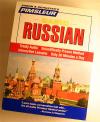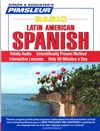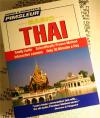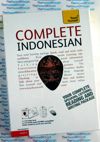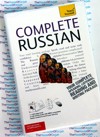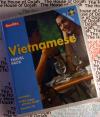Travel Talk - Croatian - 2 Audio CDs and Phrase Book
Brand New (still in original packaging wrapped) 2 CDs and Book
This title includes a 60-minute audio CD providing key words and phrases, an audio reference guide, and a Lonely Planet Phrasebook featuring: grammar, a 2-way dictionary, information on local culture, and travel tips. In this new format, the audio CD is enhanced to include a digital audio guide for onscreen viewing or printing.
Get the words you need to communicate and get around, plus a musical introduction to your destination!
- The classic audio of 300 essential travel words and phrases
- An enhanced audio CD with the U-Print PDF quick-reference audio guide
- A music CD offering a variety of selections reflecting national culture
- The latest edition of the comprehensive Lonely Planet phrasebook with two-way dictionary and cultural insights
The unique audio includes both what you hear and what you say to interact with locals at hotels, restaurants, shops - anywhere your travels take you! The enhanced CD with PDF audio guide means that you can reprint it any time you need - perfect for groups! Meanwhile, what better way to immerse yourself in the culture than listening to its rhythms!
About the Language
Croatian language (Croatian: hrvatski jezik) is a South Slavic language which is used primarily in Croatia, by Croats in Bosnia and Herzegovina, in neighbouring countries where Croats are autochthonous communities, and parts of the Croatian diaspora. It is sometimes classified as belonging to the Central South Slavic diasystem (also referred to as "Serbo-Croatian").
Standard Croatian is dialectally based on the Western Štokavian dialect with Ijekavian reflex of Common Slavic yat vowel. Croatian linguistic area encompasses two other major dialects, Čakavian and Kajkavian, which contribute lexically to the standard language. It is written with the Croatian alphabet, based on Latin alphabet.
The modern Croatian standard language is a continuous outgrowth of more than nine hundred years of literature written in a mixture of Croatian Church Slavonic and the vernacular language. Croatian Church Slavonic was abandoned by the mid-15th century, and Croatian as embodied in a purely vernacular literature (Croatian literature) has existed for more than five centuries.
Also, during the 13th century Croatian vernacular texts began to appear, the most important among them being "Istrian land survey", 1275 and "The Vinodol Codex", 1288., both in the Čakavian dialect.
The Štokavian dialect literature, based almost exclusively on Čakavian original texts of religious provenance (missals, breviaries, prayer books) appeared almost a century later. The most important purely Štokavian vernacular text is Vatican Croatian Prayer Book (ca. 1400).
Both the language used in legal texts and that used in Glagolitic literature gradually came under the influence of the vernacular, which considerably affected its phonological, morphological and lexical systems. From the 14th and the 15th centuries, both secular and religious songs at church festivals were composed in the vernacular.
Writers of early Croatian religious poetry (začinjavci), translators and editors gradually introduced the vernacular into their works. These začinjavci were the forerunners of the rich literary production of the 15th and 16th centuries. The language of religious poems, translations, miracle and morality plays contributed to the popular character of medieval Croatian literature.
The first purely vernacular texts in Hrvatski (Croatian) are distinctly different from Church Slavonic dated back to the 13th century. In the 14th and 15th centuries the modern Croatian language emerged. (It appears in texts as Vatican Croatian prayer book from 1400.) The morphology, phonology and syntax) only slightly differ from contemporary Croatian (standard language).
The standardization of Croatian language can be traced back to the first Croatian dictionary (Faust Vrančić: Dictionarium quinque nobilissimarum Europae linguarum—Latinae, Italicae, Germanicae, Dalmatiae et Ungaricae, Venice 1595) and first Croatian grammar (Bartul Kašić: Institutionum linguae illyricae libri duo, Rome 1604).
The language of Jesuit Kašić's translation of the Bible (Old and New Testament, 1622–1636; unpublished until 2000) in the Croatian štokavian-ijekavian dialect (the ornate style of the Dubrovnik Renaissance literature) is as close to the contemporary standard Croatian language (problems of orthography apart) as are French of Montaigne's "Essays" or King James Bible English to their respective successors—modern standard languages.
In late medieval times up to 17th century, the major part of semi-autonomous Croatia was ruled by two domestic dynasties of princes (bani), the Zrinski and the Francopan, who were linked by inter-marriage. Toward 17th cent. both of them attempted to unify Croatia also on the cultural and lingual level, and with great foresight they selected as their official language the transitional Ikavish-Kaykavian dialect, this being an acceptable mean intermediate between all the principal Croatian dialects (Chakavian, Kaykavian and Ikavish-Shchakavian); it is used till now in northern Istra, and in the valleys of the Kupa, Mrežnica and Sutla rivers, and sporadically elsewhere in central Croatia also.
This standardised form then became the cultivated elite language of administration and intellectuals from the Istra peninsula along the Croatian coast, across central Croatia up into the northern valleys of the Drava and the Mura. The cultural apogee of this unified standard in 17th cent. is represented by the editions of "Adrianskog mora sirena" (Syren of Adriatic Sea) and "Putni tovaruš" (Travelling escort), these being on the highest cultural plane in contemporary Europe. However, this first linguistic renaissance in Croatia was halted by the political execution of both dynasties by the Holy Roman Emperor in Vienna in 1671. Then, the Croatian elite in 18th cent. gradually abandoned this combined Croatian standard, and after an Austrian initiative (Wien 1850), replaced them with the uniform Neo-Shtokavian.
|
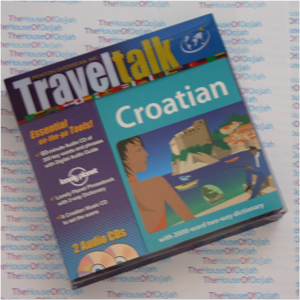


 0 Items (Empty)
0 Items (Empty)
